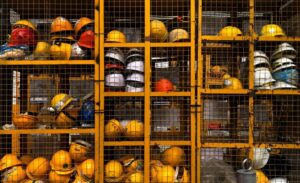Retained EU Law (Revocation and Reform) Bill
Will “Bonfire Bill” burn bright or burn out?

CREDIT: Joshua Newton/Unsplash
As the Retained EU Law (Revocation and Reform) Bill is debated in the House of Lords, Ian Clements at Quadriga Health and Safety offers clarity around potential outcomes and suggests some laws might have actually had their time.
The Retained EU Law (Revocation and Reform) Bill is progressing through Parliament and has now reached the House of Lords. The Bill, often referred to as the “Bonfire Bill”, automatically revokes a range of Retained EU law, unless ministers decide to retain it.
The deadline date in the Bill is 31st December 2023. Thus, should the Bill be enacted then there will be less than ten months for a decision to be taken on the extent to which existing health and safety regulations are retained or modified before they are automatically revoked.
What’s affected?
The range of legislation affected includes that which has been incorporated into UK law either directly due to the EU Withdrawal Act preserving requirements into UK legislation, or secondary legislation (Regulations) which have been implemented in the UK in order to comply with an EU Directives.
The latter has particular significance for health and safety legislation due to the way in which the 1974 Health and Safety at Work etc. Act has been used to update and modify health and safety legislation and to align it with EU Directives. The effect of the changes, therefore, could be to remove legal requirements and provisions that existed long before the UK entered the EU.
The whole framework of health and safety legislation familiar to health and safety practitioners, and concepts such as the hierarchy of control, risk assessment, employee consultation and requirements for competent health and safety advice would, if not specifically retained, therefore be swept away. However, the public position of the Government is that it is committed to maintaining worker protection including health and safety whilst taking full advantage of Brexit freedoms.
The risk, therefore, is that provisions are swept away without sufficient time to review, amend or reinstate them. It is noteworthy that both the CBI, IOD and other employers’ groups as well as the TUC and trade union groups have opposed the changes particularly due to the disruptive effects and the number of changes that would need to be assimilated.
Predating the UK being a member of the EU, there were very specific requirements in the UK relating to well know hazards in the workplace and the same is true of every other advanced western economy.
Historical context
However, it is worth remembering the historical context of the Health and Safety at Work etc. Act 1974 and the Robens Report on workplace health and safety which was published in 1972 and which gave rise to the Act. The report recommended the removal of the “confusing tangle of statutes and regulations” and that there should be a broad principle of those creating the risks (employers) controlling them.
Robens also advocated a greater use of codes of practice, which gave rise to the Approved Codes of Practice being given a statutory basis in the Act. Therefore, it is worth considering whether the automatic operation of the Bill, if enacted, would merely create a return to what Robens advocated.
The impact?
 So perhaps health and safety practitioners should ask themselves if, provided the broad provisions of the Health and Safety at Work etc. Act are retained (and they would not be affected by the Bill if it were enacted, and all the sunset provisions operated without intervention), would the change really matter? For example, it would be feasible for the Health and Safety Executive to replace nearly all the requirements of the regulations with which we are so familia,r with detailed Approved Codes of Practice although they would require the consent of the Secretary of State (but not Parliament) to do so.
So perhaps health and safety practitioners should ask themselves if, provided the broad provisions of the Health and Safety at Work etc. Act are retained (and they would not be affected by the Bill if it were enacted, and all the sunset provisions operated without intervention), would the change really matter? For example, it would be feasible for the Health and Safety Executive to replace nearly all the requirements of the regulations with which we are so familia,r with detailed Approved Codes of Practice although they would require the consent of the Secretary of State (but not Parliament) to do so.
Under the provisions of the 1974 Act, failure to abide by the requirements of an Approved Code of Practice creates a legal presumption of failure to comply with a provision of the Act unless it can be proved that the dutyholder had complied in another way. It would be a brave Secretary of State that prevented such Approved Codes being introduced, particularly in relation to issues such as asbestos and radiation safety or the protection of the public from major hazard issues associated with nuclear and chemical facilities.
Indeed, given the Government’s experience of the fall out following the Grenfell fire and the very comprehensive legislative response to the incident, it would seem unlikely that whole swathes of well understood requirements would be swept away.
Before Brexit
However, it is worth considering that for many years, predating the UK being a member of the EU, there were very specific requirements in the UK relating to well know hazards in the workplace and the same is true of every other advanced western economy.
Many businesses like the certainty of such provisions.
The thinking behind the Bill is to remove EU derived legislation but it would seem that the unintended consequence would also be to remove safeguards that were in place much earlier. For example, the 1961 Factories Act and the 1937 Factories Act that it replaced, contained provisions relating to guarding of machinery, controlling confined spaces hazards and controlling exposure to dust and fumes (amongst many others).
All of these provisions were removed by the introduction of legislation linked to EU Directives such as the Provision and Use of Work Equipment Regulations, the Confined Spaces Regulations and the Control of Substances Hazardous to Health Regulations.
These Regulations would, therefore, be subject to the sunset provisions of the Bill. The effect, if other action was not taken, would therefore be to remove prescriptive safeguards that have been in position in some cases for over 100 years ( even predating all the provisions above).
It would seem unlikely that, if Government ministers are correctly informed, that they would wish to take such a decision in the face of the opposition not only of Trade Unions and specialists but also of influential groups such as the CBI and IOD representing businesses that would be “freed” from such regulation.
Will “Bonfire Bill” burn bright or burn out?
As the Retained EU Law (Revocation and Reform) Bill is debated in the House of Lords, Ian Clements at Quadriga offers clarity around potential outcomes and suggests some laws might have actually had their time.
Ian Clements
SHP - Health and Safety News, Legislation, PPE, CPD and Resources Related Topics
ESG consultants key spend for sector, survey reveals
UPDATE: PPE finally receives CE marking extension while some fire safety products miss out
Proposed employment law changes could put construction workers’ lives at risk, says CIOB


 So perhaps health and safety practitioners should ask themselves if, provided the broad provisions of the Health and Safety at Work etc. Act are retained (and they would not be affected by the Bill if it were enacted, and all the sunset provisions operated without intervention), would the change really matter? For example, it would be feasible for the Health and Safety Executive to replace nearly all the requirements of the regulations with which we are so familia,r with detailed Approved Codes of Practice although they would require the consent of the Secretary of State (but not Parliament) to do so.
So perhaps health and safety practitioners should ask themselves if, provided the broad provisions of the Health and Safety at Work etc. Act are retained (and they would not be affected by the Bill if it were enacted, and all the sunset provisions operated without intervention), would the change really matter? For example, it would be feasible for the Health and Safety Executive to replace nearly all the requirements of the regulations with which we are so familia,r with detailed Approved Codes of Practice although they would require the consent of the Secretary of State (but not Parliament) to do so.
As brexit has been an unmitigated disaster i suppose the government have to be seen to be achieving something!!!!
Could a return to ACOPs be on the cards? Do the HSE have the resources to develop new ones?
Time will tell.
This is a likely scenario (returning to ACOP’s) with a single legislative Act. I personally don’t understand what the difference would be though – companies will still have to comply albeit not with the Regulations but with best practice (ACOP) – what would the change be for organisations in this regard?